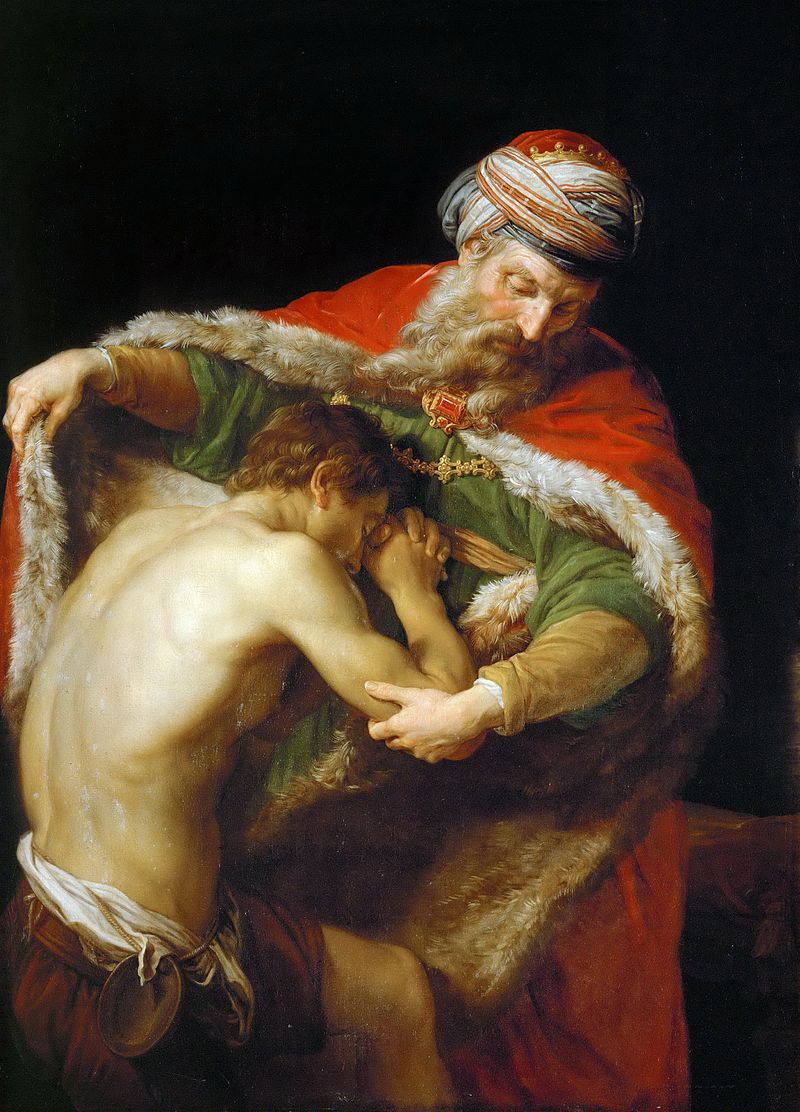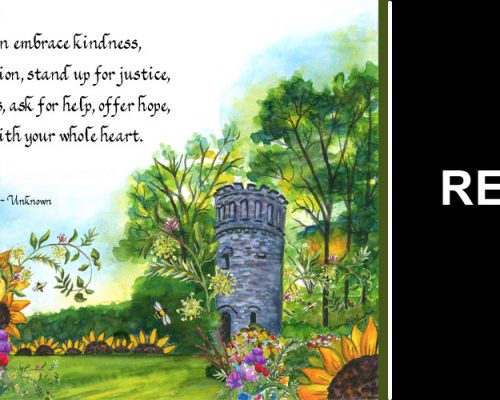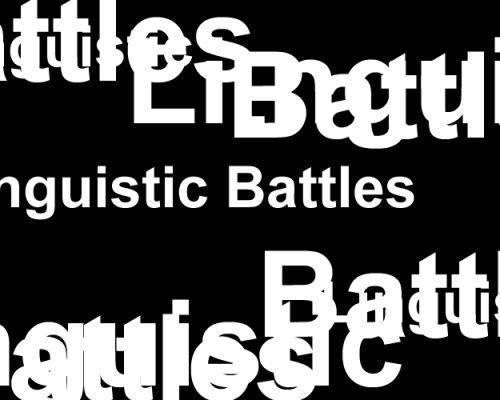Today I am thinking about the parable of the lost son and the father’s position taken.
There are three parables that come to mind from the gospel of Luke, Chapter 15, about lost things or creatures: a coin, a sheep and a son.
Why a coin? (Luke 15:8-10)
Because a coin has value.
Why a sheep? (Luke 15:3-6)
Well…sheep are good examples of creatures that are generally cared for by one who has reason to care for their well-being.
Why a son? (Luke 15:11-32)
Because what is more relatable than a broken relationship between a father and a son?
When it comes to thoughts of brokenness in relationships between a father and son, one naturally may contemplate how this translates to a broken relationship between a mother and a son or a mother and a daughter, or a father and a daughter.
_________
In the two parables of the lost coin and the lost sheep, the woman fervently searches for the coin until it is found, and the shepherd leaves ninety-nine sheep to find the one that is lost and personally carries it back upon his shoulders.
What a beautiful visual image.

But in the parable of the lost son there seems to be another position taken by the father suffering his loss.
The father dwelt within a paradigm of sorts: his home, his land, his family, his values, his love and of course and most importantly, his spiritual understandings.
Those familiar with this parable surely have heard the many expositions that stress how backwards the request (demand) of the younger son was and the implications of such a demand. To ask for one’s inheritance before the father had died essentially gave the message, “I wish you were dead” and additionally, due to the way wealth was transferred in that time (and even now), this demand and the father’s response essentially robbed the older brother of at least part of his future inheritance.
One must ask then, what were the choices the father perceived in this situation?
If he would have told his youngest son, “No, I will not do this,” then what do you think might have transpired in this story?
We simply do not know but I imagine this story has played out in various forms, details, and contexts in a plethora of families in human history with all stripes of variations and outcomes…
__________
Sometimes parents of grown children may find themselves metaphorically in some type of “hostage situation” of sorts: issues relating but not limited to addictions, inappropriate dependencies, (distorted) trauma narratives, personal identity and gender identity issues, and seemingly senseless rejections and alienations from themselves and family.
While there is no one right or wrong course of action since every situation is different, nevertheless parents may be pushed into what feels like a hostage situation with seemingly two choices:
1) silence, buy-in and re-educate themselves to the demand, movement or trend or
2) risk their grown child either metaphorically or literally severing themself and treking off in estrangement into some metaphorical (or literal) distant land, as did the son in this age-old parable of relational conflict between a parent and grown child.
I must wonder whether this was the thing that separates actions by the one (the father) who was in the position of having lost within these three parables.
The coin was lost within the owner’s territory, their home or room.
The sheep wandered within the shepherd’s accessible territory, apparently.
And, while arguably a sheep has some form of free-will, essentially neither a coin nor a sheep is capable of the kinds of hurtful actions of a son determined to embark on a journey away from all they have known to that point.
So we observe that the son – he went into some foreign land and for whatever reason we do not know the father could not, did not or would not follow him there. Even in the story of Joseph in the Old Testament, we are left with some sense that travel into distant lands between family members – fathers, sons, brothers – was an existent possibility. So I speculate that if Jesus had wanted to, his story had the potential for the father to have also trekked himself into that distant land just as the shepherd did for the lost sheep.
__________
In current psychology, many very real issues of co-dependency are often at the forefront of how a parent of a grown child should respond in difficult situations and the often heartbreaking scenes are found daily playing out all around the world, in every culture most likely (since these are issues of basic human nature and behavior), in the full spectrum ranging from full enablement to full detachment.
The goal of “love with detachment” is a difficult and painful one to achieve, especially for a mother.
In today’s climate of cancel culture which advocates both collective and personal ostracizing (and often in cruel fashion), I believe family relationships are being held hostage in some respects now more than ever, and in dramatic fashion.
There appears to me to be a weaponizing of the power to ostracize anyone and everyone who will not bend to one’s demands, and this is seen on many levels in our society, world and current culture.
While there is nothing new under the sun, there do seem to be escalations and re-inventions of age-old issues that are exacerbated by current trends and the broadening and deepening capabilities now afforded the world by mediums available for influence.
These days, that is clearly the internet.
__________
In the parable of the lost son, we aren’t privy to the father’s thoughts on this demand. We are only told of his actions, which were to give the son that which he demanded.
Here is a link to an excellent podcast with reflections on this parable, Episode 14 | You Are Always With Me And Everything I Have Is Yours by Rob Bell.
At risk of unnecessary repetition, today I’m fixed on an aspect of this: that while the father gave that which was sought by the son, the father did not leave his own paradigm of understandings of the situation.
Again this is a different posture of the one suffering a loss as compared with the parable of the lost coin and the lost sheep, so I note this and contemplate any possible meaning and message.
As we know, the parables of Jesus serve so many purposes in teaching truths, and like many things in the Scriptures and in life, for that matter, can appear contradictory.
So today I’m giving some thought to the possibility that in this parable, the father refused to be held hostage, in a sense, to aspects of his son’s narrative and demands. He did give, but he didn’t leave.
He only went so far. He held to his own sense of personal boundaries, values and understanding, perhaps…
Only after-the-fact when the youngest son has returned, during the lavish celebration, does he state to the other son that he had viewed the younger son as being a “dead son.”
Which raises the question, if the father believed his son was in fact, “dead,” then why did he daily look for him on the horizon?
What was it that was “dead” about this son?
Perhaps the answer is simple: the father assumed the worst but was hoping for the best.
How often do we do this?
So while the father was not held hostage in the sense that he would not (or could not?) leave his home, go to some foreign country and track down this son – who was at that point, eating leftovers from pigs – he did keep watch, apparently yet holding out hope and, when the son was in his sights again…when the possibility existed that he could be met even halfway in this great gulf that existed between them….he ran.
I’ve read and heard often how undignified this action would have been in that culture, for an older man to run and under those circumstances.
Clearly in this parable the father is a symbol of the life-giving Creator.
__________
Generally speaking, all parents concern themselves with that which is life-giving for their children and are protective concerning things that might bring any form of harm, spiritual death (if they are spiritually-minded) and especially, physical death, regardless of their spiritual paradigm.
So perhaps this is why the father exercised a form of wisdom and put limits on himself (but we do not know) and became somewhat of a non-participant in the younger son’s pursuits and explorations, remaining solidly within what he knew to be life-giving.
As a parent I can only imagine how painful this was for him.
As parents with grown children, over which we no longer wield control of any literal sort, we are still faced with challenges to our human and spiritual calling and how will we respond to whatever curveballs are presented.
Certainly in the parable of the lost son the younger one threw a curveball to both his father and his older brother.
While in general terms this curveball represents age-old patterns of youth and finding oneself, needful and experiential differentiation from parents and their values as part of an adult, self-defining spiritual, psychological and sociological process, parents are still faced with questions of how to remain open-minded, pliable, unconditionally accepting and loving while also retaining their own sense of self and tested values, that come with the wisdom and insights of their age and position, in many if not most cases.
For a moment and intermission of sorts in this writing, for those interested in taking this in a bit more, I’m thinking of the wonderful expression by musical artist Keith Green found in video form here:
__________
I sometimes think of the “theology” of sorts that can be found in the 1994 classic movie, Forrest Gump.
While I realize the context and relationship nature is different, the scene where Jenny returns to Forrest is a powerful image for me, each time I watch this movie. As is the scene where he says to her, “I may be a stupid man, but I know what love is.”
Whenever I hear Christians present some seemingly “convoluted idea” of love, loving someone or of God’s “love” for each person, I think of this scene, in a sense.
Since in I John it says, “God is love,” I find no cogency in any theological understanding or presentation where the basic construct of what love is and what loves does is somehow re-defined in a way where most human beings would not recognize this construct as love or loving.
Like Forrest Gump, human beings aren’t stupid. Forrest was not stupid. He knew what love was and the use of the term.
This is quite a personal processing challenge for all of us at times, isn’t it? Whether or not we hold to some religious faith or not, acting in a manner that which is consistent of love itself is a challenge.
But getting back to the scene of Jenny returning in the movie, like the parable of the lost son, there is a different yet similar powerful visual image of a grieving one waiting…waiting…for a return and a reconciliation.
It is worth noting that in this parable and also in Forrest Gump, neither the son nor Jenny finds that which is life-giving.
Each returns, in a sense, to the place they started as they flee from forms of spiritual and (potentially physical) death.
In this sense a quote from TS Eliot comes to mind, perhaps now in a somewhat different but understandable association:
“We shall not cease from exploration
And the end of all our exploring
Will be to arrive where we started
And know the place for the first time.
Through the unknown, remembered gate
When the last of earth left to discover
Is that which was the beginning;
At the source of the longest river
The voice of the hidden waterfall
And the children in the apple-tree
Not known, because not looked for
But heard, half-heard, in the stillness
Between two waves of the sea.“
—T.S. Eliot, from “Little Gidding,”
Four Quartets
(Gardners Books; Main edition, April 30, 2001)
Originally published 1943.”
There is an innocence portrayed between Forrest and Jenny in this movie. I want to say “film” yet for critic reasons in film-making, I’m on the fence and still refer to this particular work as a movie! But that’s another subject, because though probably more in the “movie” category in my mind for certain reasons, this creative works is simply packed with a lot of things that can serve as a springboard for deeper contemplation, and even theological discussions of sorts.
(Oh…there’s even the scene in the movie where Forrest runs to Jenny at one point…that would be the scene at the Washington Memorial in the pool.)
__________
I suppose this is a good ending point, though my title also references the idea of not only when God refused to be held hostage but also “when God became a ransom.”
Any thoughts about the parable of the lost son – and the father seemingly refusing to be held hostage – would logically lead to other parts of Scripture referencing God the Father in Jesus giving Himself as a “ransom” for all. (Matthew 20:28, Mark 10:45)
I suppose if I try to link these two ideas then it begs the question, in a sense, “who or what was holding the younger son hostage?” and, “why didn’t the father not only give over the material demands of the son but also himself (a ransom to the demands, in some sense)?”
And why, unlike the father in the parable, “Why did God ultimately not only meet us halfway but go the full mile in giving Himself for us and in seeking and finding us?“
I will close this with two videos of the scenes referenced in Forrest Gump.
And with that, I need to start my Saturday, for real…
__________
“But at nighttime when there was nothing to do, the house was all empty, I’d always think of Jenny…” – Forrest Gump
” And then…she was there…” – Forrest Gump
“Jenny came back and stayed with me…maybe it was because she had no where else to go…or maybe it was because she was so tired…because she went to bed and slept and slept…like she hadn’t slept in years…” – Forrest Gump
Thank You For Reading
Please Feel Free To Express Your Thoughts Below



